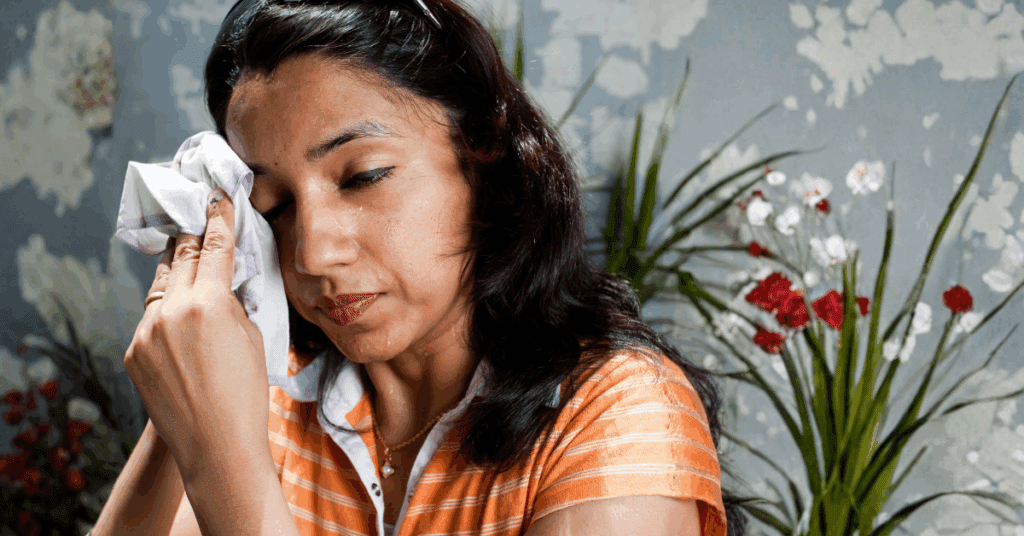FAQs
How to stop excessive sweating in Ayurveda?
Ayurveda addresses excessive sweating by restoring the balance of Pitta, the heat regulatory factor in the body. Treatment may include cooling herbs, dietary changes, activities to calm the body (like pranayama), and, when appropriate, Panchakarma treatments to reduce internal heat and support the sweat glands to work normally (as opposed to merely suppressing sweating).
How to decrease sweating naturally?
Small daily changes can make a significant difference, including:
-wearing loose and breathable cotton clothing
-staying hydrated (drink cool water vs. iced water)
-reducing spicy, oily, and extremely salty foods
-practising slow breathing/meditation to calm stress-induced sweating
-sprinkling herbal dusting powders or absorbent pads on problem areas
-wearing loose and breathable cotton clothing
-staying hydrated (drink cool water vs. iced water)
-reducing spicy, oily, and extremely salty foods
-practising slow breathing/meditation to calm stress-induced sweating
-sprinkling herbal dusting powders or absorbent pads on problem areas
How to cure excessive sweating of hands and feet naturally?
Soaking hands or feet in cool water with a pinch of alum or a few drops of sandalwood oil can help cool the skin. However, if sweating is frequent, it is important to seek an Ayurveda consultation so there can be a structured plan of action (herbs or therapies) targeted to sweat management, especially on the hands and feet.
What foods reduce sweating?
Cooling and hydrating foods help, for eg, cucumber, coconut water, tender coconut, buttermilk, melons, mint, coriander, and whole grains. Avoid or reduce excessive chilli, onion, garlic, caffeine, tea, alcohol, and fried foods, as these can trigger heat and sweating.
What deficiency causes sweating?
Excessive sweating can sometimes be linked to mineral imbalance, thyroid issues, blood sugar changes, or certain medications. It’s not always a deficiency — but if sweating is sudden, unusual, or comes with weight loss, fatigue, or palpitations, speaking to a doctor is important.
REFERENCES
Verma, V., Gehlot, S., & Agrawal, S. (2019).
Ayurveda insights on physiology of sweating and thermoregulation.
Journal of Natural Remedies, 19, 114–123.
doi:10.18311/jnr/2019/23761.

Brackenrich, J., & Medeus, C. F. (2025).
Hyperhidrosis. In StatPearls [Internet]. Treasure Island (FL): StatPearls Publishing. [Updated 2022 Oct 3].

Kisielnicka, A., Szczerkowska-Dobosz, A., Purzycka-Bohdan, D., & Nowicki, R. J. (2022).
Hyperhidrosis: Disease aetiology, classification and management in the light of modern treatment modalities.
Postępy Dermatologii i Alergologii, 39(2), 251–257.
doi:10.5114/ada.2022.115887.



